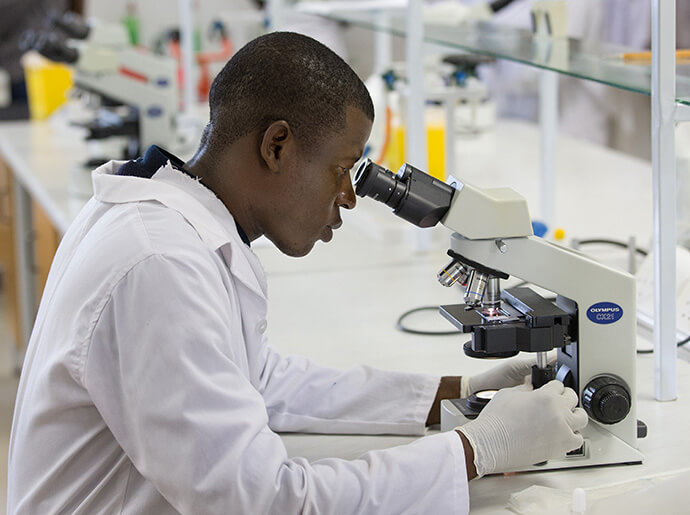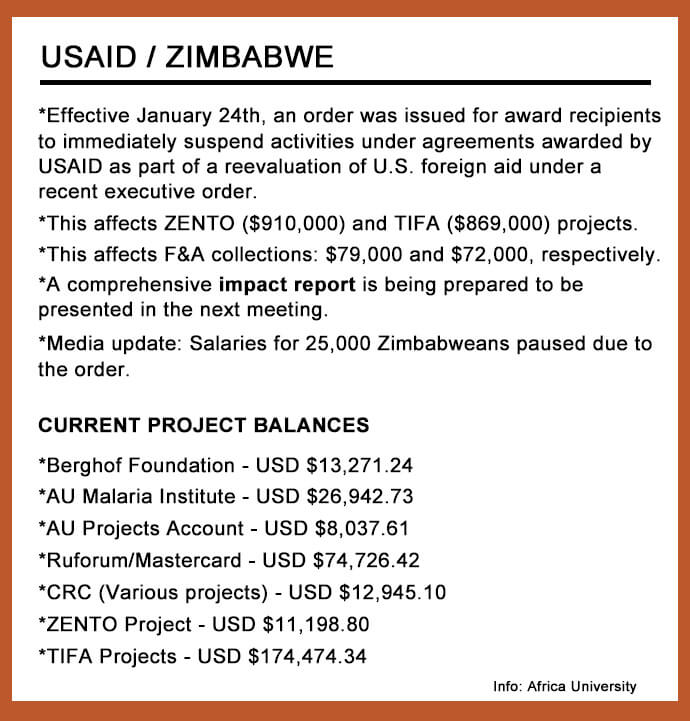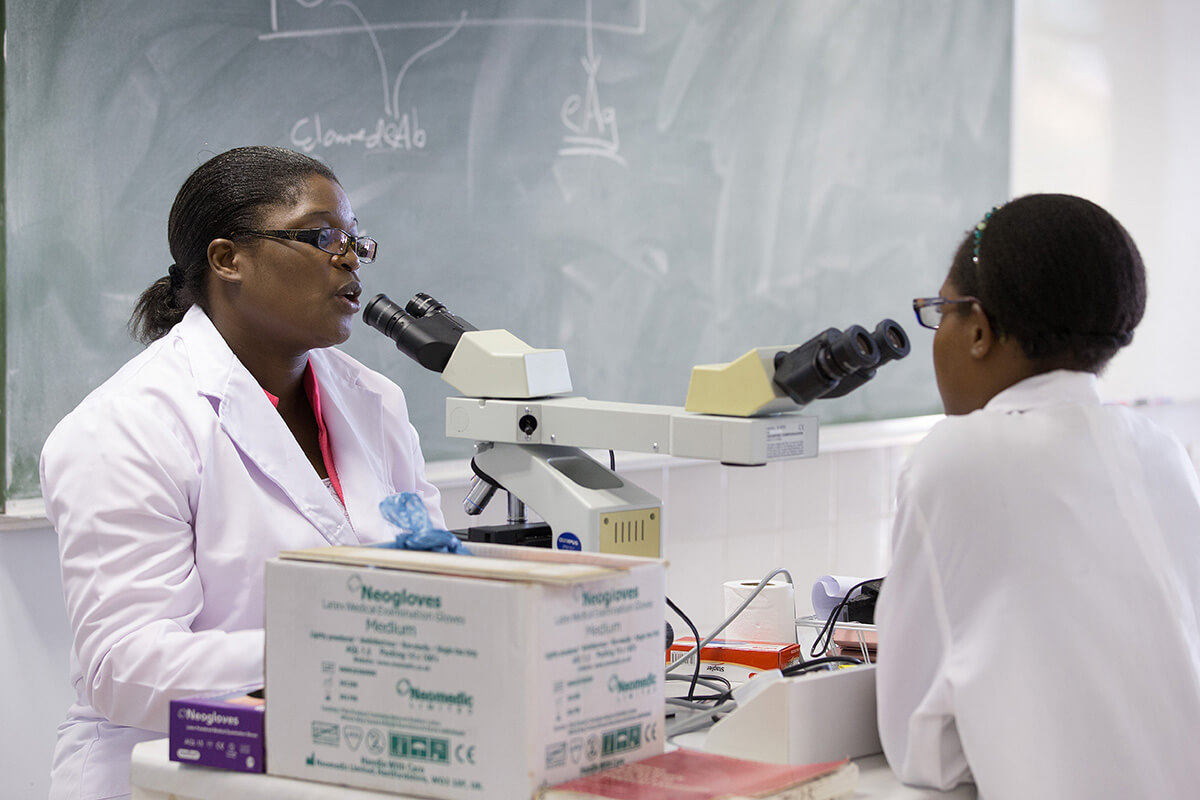Key Points:
- At Africa University in Zimbabwe, programs researching malaria and tuberculosis were halted and staffers on those efforts were no longer getting their paychecks after funding from USAID was suspended.
- The freeze on disbursements had an immediate $1.2 million impact on the United Methodist-related university, with 30 employees no longer being paid.
- Bishop Julius C. Trimble, top executive of the United Methodist Board of Church and Society, is urging United Methodists to contact Congress and complain about the situation.
United Methodist aid efforts in Africa are suffering, and thousands of employees aren’t getting their paychecks, after the Trump administration froze funding to the federal agency that provides aid and development help around the world.
A 90-day freeze on foreign aid was imposed on the inauguration day of President Trump. The freeze shuttered worldwide programs at the United States Agency for International Development. Now thousands of agency employees are on administrative leave, its Washington headquarters closed and its website shut down.
At Africa University, a pan-African United Methodist university in Zimbabwe, programs researching malaria and tuberculosis were halted and staff members on those efforts were no longer getting their paychecks. In Zimbabwe alone, 25,000 people were affected by the freeze, said James H. Salley, president and chief executive officer of Africa University.
“The United States is the largest contributor of humanitarian aid in the country of Zimbabwe,” Salley said. “Some people are not eating; they have no idea where their next dollar will come from.”
The freeze had an immediate $1.2 million impact on Africa University, Salley said. On malaria research alone, 30 people aren’t getting their salaries.
“Our shared United Methodist values compel us to help and not hurt the most vulnerable in our midst, which includes our global neighbors,” said Bishop Julius C. Trimble, top executive of the United Methodist Board of Church and Society.
“For the U.S. to abruptly renege on its congressional commitments to fund extremely vital programs for the most vulnerable in the world by withholding life-saving food and medicine from children, the sick and elderly is astounding, shameful and deeply un-Christian.”
Trimble added: “Jesus said, ‘Truly I tell you, just as you did it to one of the least of these brothers and sisters of mine, you did it to me.’”

Efforts to counter the USAID cuts were limited at Africa University to education in its spheres of influence “to help make them aware of how dire things are when USAID is not up and running in the country of Zimbabwe,” Salley said.
In addition to the 90-day freeze, the Trump administration, led in part by businessman Elon Musk, has made plans to shut down USAID and possibly move its functions under the U.S. State Department.
President John F. Kennedy established the United States Agency for International Development by executive order based on authority given in the Foreign Assistance Act of 1961. In 1998, U.S. Congress enshrined USAID as an executive agency under U.S. law.
Many legal experts say only an act of Congress could eliminate USAID, and they add that the current dismantling of the agency by Musk and others in the Trump administration violates U.S. law.
In the past year, the agency has worked to alleviate poverty and disease in more than 100 countries, often in coordination with faith-based partners.
On Feb. 6, The New York Times reported the Trump administration’s plans to reduce the number of USAID workers from a staff of more than 10,000 to about 290 positions. That same day, officials learned that about 800 awards and contracts administered through the agency were being canceled. As of Feb. 7, almost all of the agency’s direct hires were put on administrative leave and its roster of foreign service officers given 30 days to return to the U.S.
Africa University’s employees are primarily locals, so they are not affected by the call to return to the U.S., Salley said.
Salley is planning to fundraise to help alleviate the damage, but he said he doesn’t think he can raise $1.6 million to completely compensate for the loss of USAID funds.
“The immediate thing that comes to my mind is when COVID hit, we had individuals who provided gifts specifically to keep people working,” Salley said. “So that's what makes me optimistic. I believe in people and folk coming to our assistance.”
Trimble suggested people concerned about the situation help by contacting Congress’s switchboard at 202-224-3121 and telling U.S. representatives to restore “the funding for the United States Agency for International Development and save lives.”
Salley declared himself optimistic that a solution would be forthcoming.
“We have come this far by faith,” he said. “With man, it’s impossible, but with God, all things are possible. … When other folk counted us out, when other people, when other governments and when other regimes said ‘no,’ God said ‘yes,’ and I believe that now.
“We stand on what God has done once, God will do again. So that’s why I'm optimistic.”
Patterson is a UM News reporter in Nashville, Tennessee. Contact him at 615-742-5470 or [email protected]. To read more United Methodist news, subscribe to the free UM News Digest.





